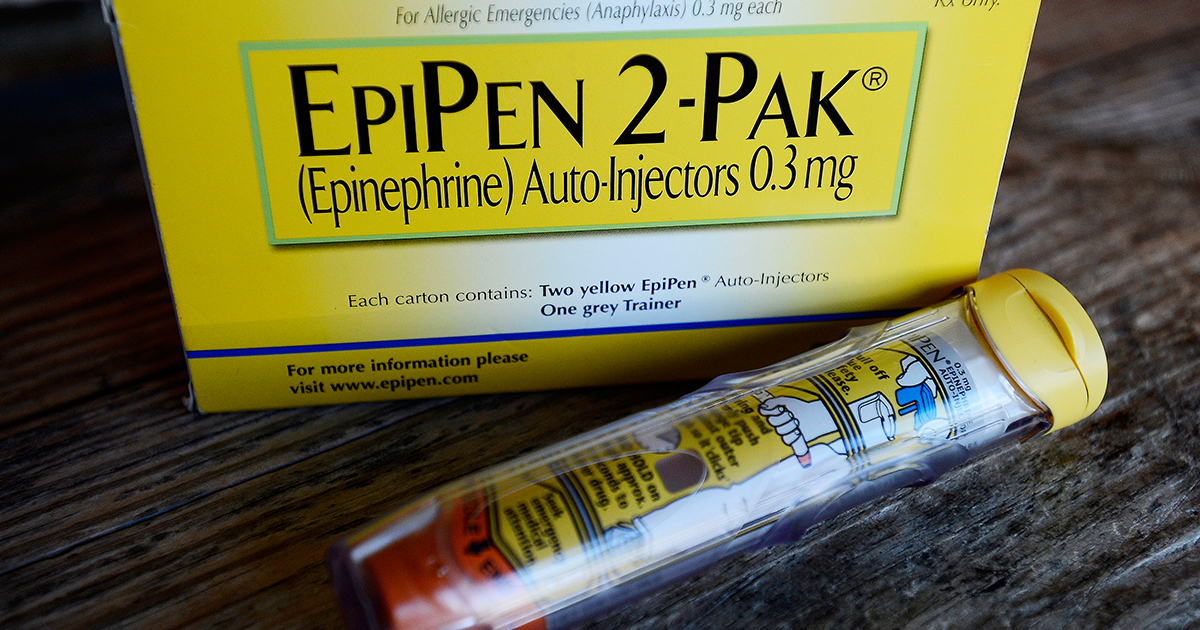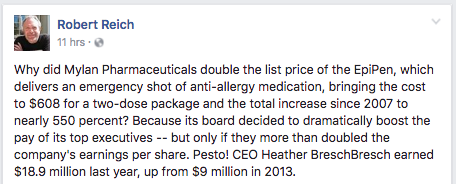Robert Reich Breaks Down EpiPen Price Hike

By:
To even the most cynical observers of the pharmaceutical industry, the decision of Mylan to increase the price of the emergency anti-allergy kit EpiPen by almost 550 percent in less than a decade was tough to fathom.
 AP/Mark Zaleski - apimages.com
AP/Mark Zaleski - apimages.com
As backlash against the company's EpiPen price hike continues to unravel, it remains somewhat difficult to answer a very simple question: why did they do it?
Luckily, political commentator Robert Reich stepped in Thursday and provided a succinct explanation in a Facebook post.
 Facebook/Robert Reich - facebook.com
Facebook/Robert Reich - facebook.com
Recent spikes in Mylan executives' salaries provide a clue to what was going on behind the scenes, he explained. And the former Secretary of Labor doesn't think they're being rewarded for good behavior.
Reich argued that the company linked executive salaries to profit goals.
 Facebook/Robert Reich - facebook.com
Facebook/Robert Reich - facebook.com
He linked to a Thursday Wall Street Journal report detailing a program Mylan introduced two years ago that provided incentives for big sales with huge salary increases.
From the WSJ:
"Companies commonly give their executives incentives by linking their pay to earnings or stock-price goals, and companies are free to raise prices as they see fit. But some industry watchers say Mylan’s incentives may have played a role in the steep price increases for the EpiPen, a medication injector that many school-age children and others depend on to reverse severe allergic reactions."
“They are being compensated very heavily on hitting [earnings per share] targets,” analyst Ronny Gal told the WSJ. “We suspect Mylan realized that their EPS targets will be tougher to reach and decided to raise prices on EpiPen to make that target more achievable."
The New York Times put it more directly: "Given that EpiPen accounted for $1 billion of Mylan’s $9.4 billion in revenue in its most recent year, the allergy treatment’s price increases seem integral to meeting those targets and generating a big payday."
Mylan, for its part, has denied that the company's performance is primarily a result of EpiPen price hikes.
“Mylan has a large and diverse business, with more than 2,700 products sold in 165 countries and 600 products sold in the U.S. alone," spokeswoman Nina Devlin told the New York Times.
